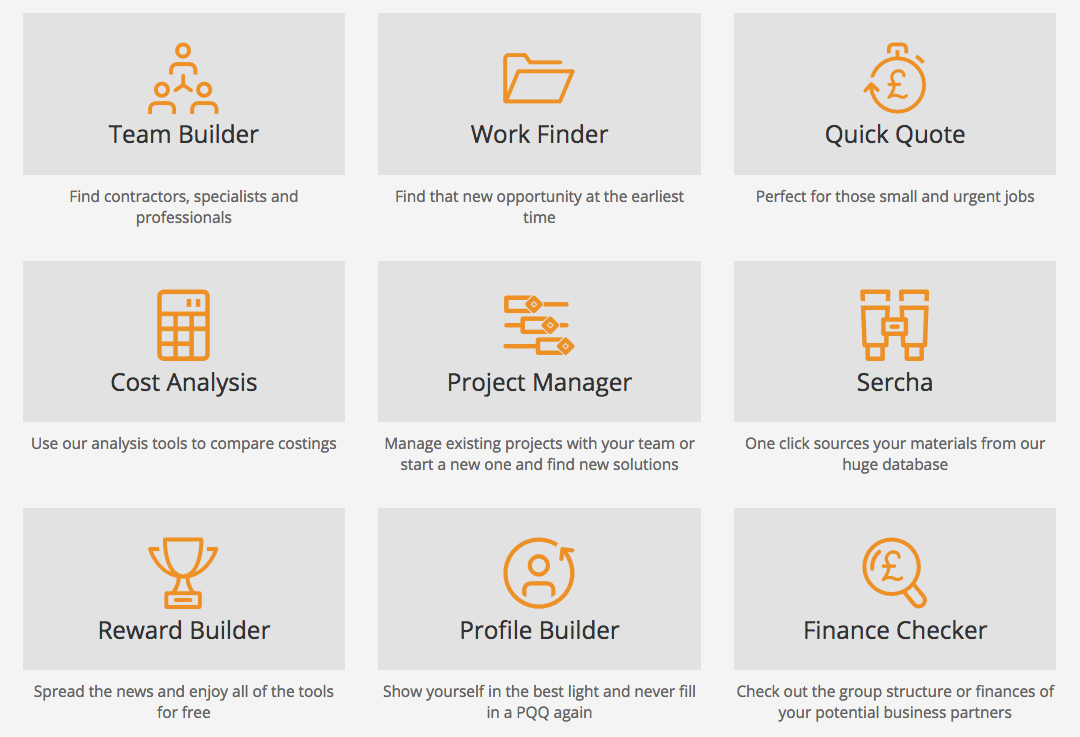Managing self-build projects using TenderSpace
Contents |
[edit] Introduction
Many people dream of building their own home. A place that does what they want it to, not what a developer thinks they want. A home where the rooms are in logical places, the accommodation flows intelligently and where there is the storage they will need.
A 2011 YouGov poll commissioned by the Building Societies Association suggested that 1 in 2 people would consider building their own home if they felt that they could. However, undertaking a self- build project can be the most expensive and stressful undertaking individuals ever undertake. The process is very complicated and extremely time consuming and the risks can be high. Projects can get out of control, with costs increasing, quality reducing and programmes slipping.
As a result, self building only accounts for around 10% of new homes built in the UK. This compares very unfavourably with other EU countries such as Austria, where more than 80% of new homes are self built.
There are a wide range of resources available to help self-builders, offering advice about different procurement routes, design options, costs and so on. But these can themselves be overwhelming, and it can be difficult to know where to start.
TenderSpace is a free platform offering a range of tools to enabling self-builders to safely, securely and efficiently manage their projects from the first sketch idea to the completed building. It makes the process easier and less time consuming to manage, helps avoid common pitfalls and reduces the risk of things going wrong.
[edit] Selecting the right team
Self builders will usually start with a rough idea of what they want, a plot of land and probably a sketch or a design brief of some description. They then need to find an designer and select a procurement route; either appointing a main contractor to manage the works, managing the project themselves or perhaps appointing a consultant such as an architect as project manager. Finding the right professionals is critical.
The Team Builder component of TenderSpace can help find professionals, trades and contractors to get the project underway. It gives the reassurance of knowing that all available opportunities have been explored and saves hours of searching the internet. For instance, there may be contractors or specialists outside of the area with just the expertise needed.
Interested parties will respond, with communications neatly stored and organised inside the Project Manager component of TenderSpace. This is the area of the platform where the entire project is managed. Drawings can be uploaded, stored and shared, the project team can be messaged, comments made, deadlines set and progressed monitored.
Self-builders can find out whether prospective professionals, trades and contractors have the right experience for the job by looking at their profile where they will also find reviews and references. In addition, the Finance Checker component of TenderSpace shows relevant financial information. This is a crucial part of the assessment process. The construction industry is notoriously late at paying contractors and suppliers, and this can leave them with cash flow problems that frequently result in insolvency. For this reason, project managers often recommend that individual contracts should not account for more than 20% of the annual turnover of a company. An episode of Channel 4’s Grand Designs from East Sussex screened in September 2015 demonstrated how a poor choice of contractor lead to a home builder losing £80,000 when the contractor became insolvent.
[edit] Project management
Once a team has been selected, Project Manager allows users to store up to 1Gb of drawings and data to keep track of the project and make sure everyone is working on the most up to date information.
The Cost Analysis tool helps project managers compare results when tenders are sought, showing at a glance where contractors are over or under compared to budget figures and helping reveal any inconsistencies.
The Sercha tool helps find manufacturers and suppliers of particular components or materials. One simple form allows users to upload the specification and other relevant details, such as when materials are needed, and the quantities required. The form is then sent directly to relevant businesses. So for instance, if aluminium windows are needed, select ‘aluminium windows’ from the menu in Sercha and the project requirements will go to all aluminium window manufacturers and suppliers in the UK. This can save huge amounts of time searching directories or the internet, or leaving unanswered messages. Instead responses are only received from businesses that are able satisfy the requirements.
[edit] Conclusion
The UK government believes self building can result in properties that are higher quality, greener and cheaper, highlighting the fact that '...The average cost of a ready-made home is now more than £232,000, but a budget of £150,000 is usually adequate to build a three to four-bedroom house..'
But potential self-builders are put off by the complexities of the construction industry and the consequences of something going wrong.
TenderSpace provides a range of tools to help self-build projects run as smoothly as possible, avoid common problems and help deliver dream homes.
This article was created by Emma Stapleton, FRICS, Founder & COO TenderSpace.
--TenderSpace 10:08, 05 Apr 2016 (BST)
[edit] Related articles on Designing Buildings Wiki
- Building an extension.
- CDM for self-builders and domestic clients.
- Community right to build.
- Custom-build homes.
- Kit house.
- Self build and custom housebuilding registers.
- Self-build and Custom Housebuilding Bill 2014-15.
- Self-build home project plan.
- Self-build homes
- Self-build homes negotiating discounts.
- Self-build initiative.
- Serviced plot.
- Technology helps quash conflict in the supply chain.
- TenderSpace.
- VAT refunds on self-build homes.
Featured articles and news
Scottish parents prioritise construction and apprenticeships
CIOB data released for Scottish Apprenticeship Week shows construction as top potential career path.
From a Green to a White Paper and the proposal of a General Safety Requirement for construction products.
Creativity, conservation and craft at Barley Studio. Book review.
The challenge as PFI agreements come to an end
How construction deals with inherited assets built under long-term contracts.
Skills plan for engineering and building services
Comprehensive industry report highlights persistent skills challenges across the sector.
Choosing the right design team for a D&B Contract
An architect explains the nature and needs of working within this common procurement route.
Statement from the Interim Chief Construction Advisor
Thouria Istephan; Architect and inquiry panel member outlines ongoing work, priorities and next steps.
The 2025 draft NPPF in brief with indicative responses
Local verses National and suitable verses sustainable: Consultation open for just over one week.
Increased vigilance on VAT Domestic Reverse Charge
HMRC bearing down with increasing force on construction consultant says.
Call for greater recognition of professional standards
Chartered bodies representing more than 1.5 million individuals have written to the UK Government.
Cutting carbon, cost and risk in estate management
Lessons from Cardiff Met’s “Halve the Half” initiative.
Inspiring the next generation to fulfil an electrified future
Technical Manager at ECA on the importance of engagement between industry and education.
Repairing historic stone and slate roofs
The need for a code of practice and technical advice note.
Environmental compliance; a checklist for 2026
Legislative changes, policy shifts, phased rollouts, and compliance updates to be aware of.





















